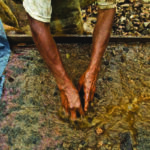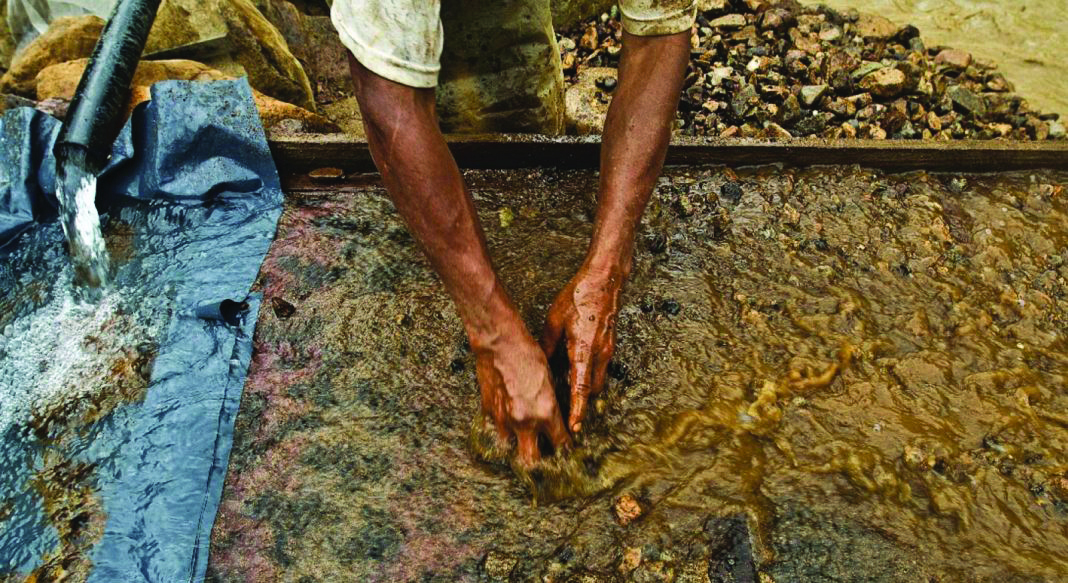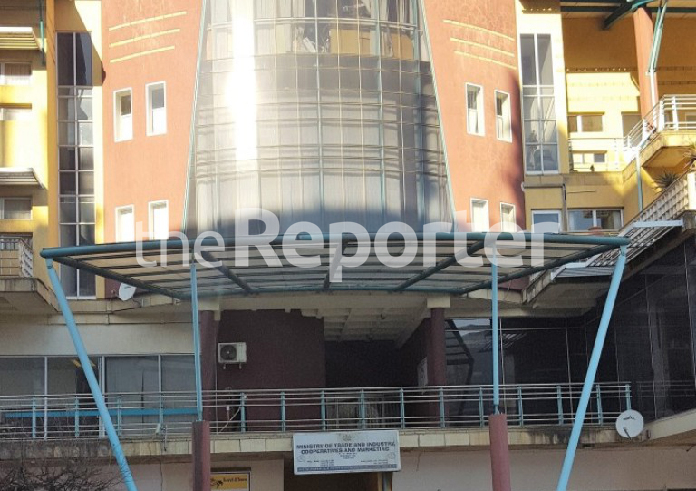Victory for artisanal diamond miners

SHARE THIS PAGE!
Artisanal miners are thrilled as the government has begun issuing mineral permits for extraction of alluvial diamonds from riverbeds across the country.
The historic step, which came into force earlier this month, legalises alluvial diamonds mining activities and brings them into the formal economy.
Issued in terms of Mines and Mineral (Amendment) Act, 2022, the permit grants indigenous Basotho authority to mine diamonds that have been eroded from their original sources to alluvial deposits within riverbeds or old river channels.
The move comes three years after the government suspended issuing mineral permits, due to lack of adequate frameworks to protect both artisanal miners and the environment.
According to the recent Lesotho Diamond Mining Industry Performance Report, the sector’s direct contribution to government fiscus through taxes and levies improved from M940 million in 2021 to a hefty M1.1 billion in 2022.
Under the terms and conditions of the permit, a miner is permitted to extract alluvial diamond within the designated area not exceeding 100m2, for a period of one year from May 5, 2025 to May 5, 2026.
The permit holder shall, from the date the permit is issued thereafter, pay annually to the government at the office of the Commissioner of Mines a fee in accordance with Section 63 of the Act.
The permit holder shall also conduct their operations within the permitted mining area in accordance with an approved work programme.
They shall further pay the government monthly royalties in accordance with Section 59 of the Act. Artisanal miners often search for diamonds in rivers, sifting through sand and gravel to find the precious stones.
The vice chairperson of Artisanal Miners’ Association, Kobina Baffoe, shared his delight at the government’s decision to grant mineral permits.
Baffoe affirmed the association’s commitment to the country’s well-being promising that artisanal miners will strive for excellence until they are fully recognised and categorised as small-scale miners.
He emphasised the importance of collaboration among artisanal miners, urging them to work together to expand their industry and support the creation of new jobs.
“It is vital for artisanal miners to come together, share knowledge and expertise and take the necessary steps to grow this sector. By so doing, we will not only improve our livelihoods, but also contribute to the economic development of this country,” Baffoe said.
He further called on the government to invest more in the mining sector, with a particular focus on artisanal and small-scale diamond mining which is primarily run by indigenous Basotho.
Within the next five years, the artisanal mining sector could account for a significant portion of the country’s GDP if given the necessary support.
“The government should see this sector as an invaluable asset. With adequate support and guidance, I am certain that this sector can contribute approximately five to 10 percent of the country’s GDP, in the next five years, Baffoe asserted.
Another delighted artisanal miner, Mabohla Mabusetsa, received a permit to mine extract alluvial diamonds in Carlton River (Leporoporo), near Lifariking in Berea district.
Mabusetsa was thrilled with the development, remarking that years of struggles and appeals from the artisanal miners have finally paid off.
He said the permits bring new opportunities for indigenous Basotho who do not have the muscle to start big in the lucrative diamond industry.
“This is a great opportunity for indigenous Basotho to directly benefit from the country’s rich mineral resources. I am excited and can’t wait to get started and contribute to the local economy,” he noted.
Mabusetsa indicated that he, together with some small-scale miners, were instrumental in the development of the Minerals and Mining Policy of 2015, which officially recognised and incorporated artisanal and small-scale mining known as ‘Peke le Kharafu’ into the country’s mining regulations.
Mabusetsa expressed optimism that, with the new licenses, artisanal miners will contribute significantly to the country’s economy by generating new jobs and increasing revenue.
Armed with official recognition, the miners were commuted to mining ethically and responsibly, he said.
Speaking with theReporter this week, deputy principal secretary in the Ministry of Mining, Seboka Thamae, explained that the decision to suspend mineral permits years ago was due to lack of adequate frameworks that protected both artisanal miners and the environment.
“At the time, the Mines and Minerals Act of 2005, was excluding artisanal and small-scale mining, until the parliament amended the law in 2022. There were no clear frameworks to ensure the safety of miners and to prevent damage to the environment. We needed to establish such frameworks,” he stated.
Thamae stated that diamonds in the country were primarily found in rivers and Kimberlite pipes which require extensive blasting by large mining corporations.
According to him, the ministry’s policy regarding the issuance of mineral permits for artisanal miners is twofold: “Artisanal miners will first report all diamond discoveries to the ministry, which will then auction or help them find markets, preferably in places such as Dubai.”
The ministry will also actively collaborate with the World Diamond Council and other experts to develop policies that will ensure transparency, to monitor the process, thereby ensuring that it ethical, sustainable and fair.
“We hope that these artisanal miners will eventually develop into small-scale miners, and start forming cooperatives to mine diamonds from diamondiferous geological formations with the ultimate goal of growing into larger mining companies,” Thamae said, adding that the success of the artisanal miners would contribute to the development of their families and the country’s economy.
However, despite this significant milestone, the ministry is still grappling with jurisdictional and geographical challenges.
Also, artisanal miners are not currently required to operate within their own areas, which can create conflict among communities where they are mining, Thamae pointed out.
He added that without legislation mandating miners to remain in their respective regions, disputes between miners and locals are likely outcomes.
“We urge artisanal and small-scale miners to be mindful of potential conflicts and chose their places of operation within their own communities. There is no legal tool restricting that but we hope they are mindful, and prioritise sites in their own communities when applying for permits.”
He pledged that the government would continue supporting artisanal miners by creating a friendly environment to enable them to grow.
“Artisanal and small-scale miners are crucial to our national economy; and their contributions should not be underestimated. We need to be transparent with them and guide them to ensure their continued progress in the mining sector,” Thamae said.
On his part, former minister of mining, Serialong Qoo, lauded the licensing of artisanal miners as a step in the right direction, citing the potential of the country’s natural resources to lift its people out of poverty.
“These resources belong to Basotho and this shift is an important step towards empowering them to generate wealth and alleviate poverty. It will provide families with the means to put food on the table, purchase fertiliser to grow their own food and send their children to school. Our people will finally be able to use their own natural resources to improve their lives,” he said
He added: “I’m glad that the government has finally realised that artisanal and small-scale miners contribute significantly to the government revenue. This will now allow Basotho to operate legally. I would advise the ministry to deploy its officials to go into the villages and use chiefs’ offices for interested Basotho to fill up forms and apply for permits. That way it would mean less costs.”

PAC unfazed by LEC court bid
6 days ago
Sasai launches EcoCash agents campaign
7 days ago
Small-scale miners’ long wait finally over
7 days ago
Journalists schooled on Insolvency Act 2022
8 days ago
LNIG Hollard pumps M1m into gospel event
8 days ago
We’re sidelined, councillors say
8 days ago
Victory for artisanal diamond miners
8 days ago
Memorial service for MCA boss
9 days ago
